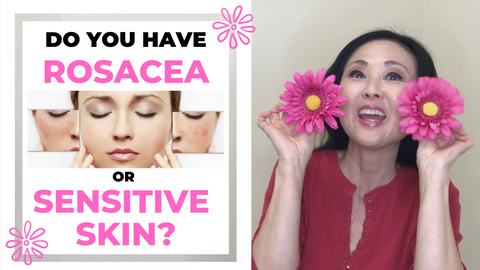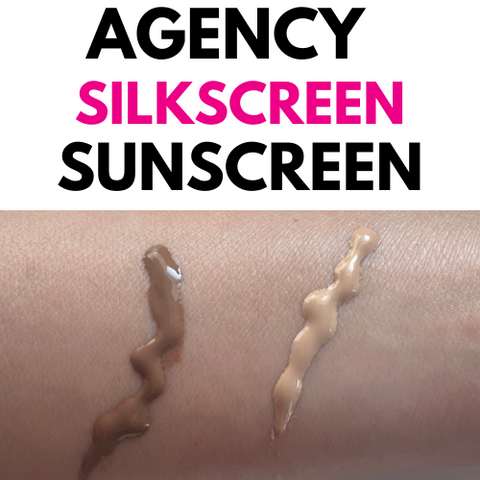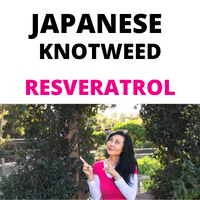Skin type vs skin condition are often terms used interchangeable and actually they are two different things.
Basically, skin types are what you are born with. Genetics and ethnicity generally determine skin types.
Skin conditions are what you develop and can change almost day to day. This can be due to to several factors such as:
-products you are using
-hormonal fluctuations
-foods that you are eating
-environment
-climate
-lifestyle
***PRO TIP**
This is why you use products according to how your skin condition is that particular day vs just a product for a skin type.
For example, if you normally have dry, aging skin and you are using a cream based cleanser and you wake up one morning and you notice that you have a few pimples, the more appropriate cleanser to use may be one for oily or break out prone skin.
Instead of using a hydrating sunscreen all over the face, you may use an oil free sunscreen in the area you are breaking out just until the acne lesions dry up and heal. A spot treatment is recommended to help dry up and heal the acne lesion. Since your skin may not be oily on a regular basis, there is no reason to use acne control products all over the face.
It would be better if just the area was treated.
***PRO TIP*** – So you can change some of your products to adjust to your skin but, of course, NOT every day.
***This does NOT give you the excuse though, to be using different product all the time.
- You may not see results from the products you are using if you are using too many products infrequently.
- You may develop sensitivities over time and you will not know what the cause of the sensitivities are.
6 BASIC SKIN TYPES:
Dry/Alipoid
Acne (more of a disorder)
Normal
Combination
Sensitive (primarily considered a condition)
5 Basic Common Skin Conditions consumers purchase products to address:
-Break outs (acne)- Oil Control, Clearing, Purifying, Clarifying, Oil free
-Allergies (sensitized)-anti redness, soothe, calm, cool
-Dehydration-hydrate, moisture,
-Pigmentation-lightening, brightening, evening out skin tone, fade
-Premature Aging- plumping, firming, smoothes out , diminishes, minimizes fine lines and wrinkles, glowing
10 COMMON SKIN CONDITIONS:
Aging
Comedones
Cysts
Dehydration
Pigmentation
Papules
Poor elasticity
Rosacea
Redness
Sensitivities
Sun Damage
Dry Skin a.k.a.- Alipoid Skin Type-
-Skin does not produce enough sebum
-Appearance -small to almost no visible pores
-Smaller follicles
-Texture can be rough and tight
-Impaired barrier function-Protecting surface keeping moisture barrier intact is a challenge
-More prone to show signs of aging than other skin types.
Oily Skin Type-
-Large size pores
-Excess sebum production
-Ages Slower
-Tends to be thicker
-May or may not be accompanied by break outs
-More common although NOT exclusive to darker skin types
Acneic Skin type (really a disorder)-
-Tends to be oily
-Frequently battling break outs that may include papules, comedones, pustules and sometimes cysts
-May be reactive skin
Normal Skin Type-
-Shows a good balance of oil and hydration levels
-May have occasional break outs
-Fairly easy to care for and maintain
-Pore size is normal- not large but can be visible
Combination Skin-
-Pore size may be larger in the T-Zone
-Visible pore size extends past the nose
-Usually more apparent during puberty and after
-Skin type that bests responds to more than one type of cleanser and moisturizer.
**Which Cleanser is best for me?
Sensitive Skin type-
-More common in Northern European heritage-although it does exist all over the world
-Tends to have thinner skin
-More prone to redness/ inflammation/irritation
-Reactive skin to products, temperature and emotions
-More prone to conditions such as Rosacea, Telangiectasia, and Couperose
***The 2 skin conditions that can be the most tricky to treat are:
-Acne
-Sensitive
-Combination of both
Probiotics in Skin Care-Acne, Rosacea, and Sensitive
Signs of Rosacea and 3 Stages of Rosacea
This is because the very products that help kill bacteria that causes the break out and control oil can also be the same ingredients that can cause inflammation and irritation of the skin.
Both of these are reactive skin condition so they are what I call,”high maintenance skin”. BOTH of these skin types (based on my professional experience) responds better to high quality ingredients and skin care products.
**PRO TIP:
Sensitive Skin types respond better to;
Enzyme based exfoliants vs AHA based acids such as glycolic acid.
Enzyme Exfoliants such as papain and bromelain.
If your skin can tolerate an AHA Lactic acid is one of most gentle acids and it also has hydrating properties as well. For some, salicylic acid (bha) works better than the lactic acid but every one responds differently. However, sensitive skin types responds better to these than glycolic acid and retinoids.
***If you have BOTH of these skin types, this can be a frustrating experience as you try to control oil, acne lesions and break outs while trying to calm skin down or keep the skin hydrated while balancing oil.
This is a good example of how confusing it can be to use the right skin care product for the condition and not focus on the skin type.
If you would like to take a SKIN QUIZ
to narrow down which products to focus on, please click on the link.
If you would like a more customized consultation and evaluation on your skin and how to correctly use product in the correct way, please go to:
ONLINE SKIN CONSULTATION to learn more and to see if you are the right candidate.
Skin types helps you understand what your skin is and skin conditions change day to day. Your skin care routine should adjust to your skin condition.
Remember, Make is an ART and Skin Care is a SCIENCE.
Follow us @:
YouTube Channel:https://www.youtube.com/channel/UC4XGWX6eheTisHo8UBsdOWA
Instagram:@GoSeeChristy
Facebook:https://www.facebook.com/goseeChristyBeautyBoutique/
Twitter:https://twitter.com/goseechristy
Pinterest:https://www.pinterest.com/goseechristy/




